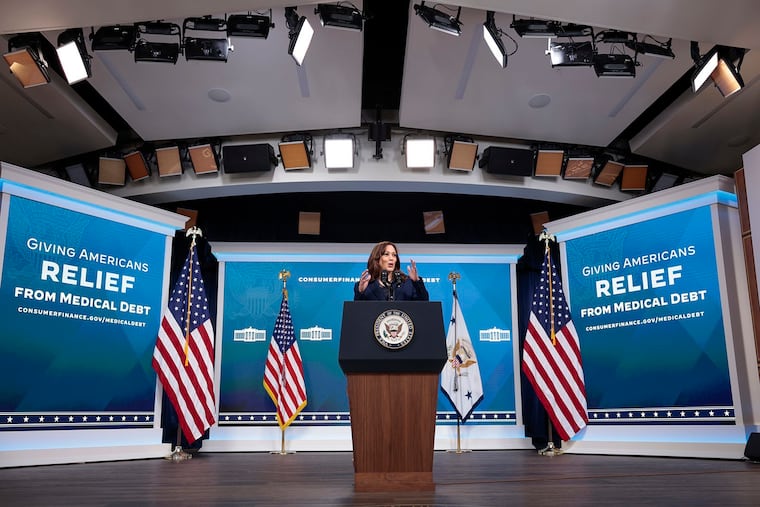Medical billing mystery: Her first colonoscopy cost her $0. Her second cost $2,185. Why?
Colonoscopies can be classified as for screening or for diagnosis. How they are classified makes all the difference for patients’ out-of-pocket costs. .

Elizabeth Melville and her husband are gradually hiking all 48 mountain peaks that top 4,000 feet in New Hampshire.
“I want to do everything I can to stay healthy so that I can be skiing and hiking into my 80s — hopefully even 90s!” said the 59-year-old part-time ski instructor who lives in the vacation town of Sunapee.
So when her primary-care doctor suggested that she be screened for colorectal cancer in September, Melville dutifully prepped for her colonoscopy and went to New London Hospital’s outpatient department for the zero-cost procedure.
Typically, screening colonoscopies are scheduled every 10 years starting at age 45. But more frequent screenings are often recommended for people with a history of polyps, because polyps can be a precursor to malignancy. Melville had had a benign polyp removed during a colonoscopy nearly six years earlier.
Melville’s second test was similar to her first one: normal, except for one small polyp that the gastroenterologist snipped out while she was sedated. It, too, was benign. So she thought she was done with many patients’ least favorite medical obligation for several years.
Then the bill came.
The patient: Elizabeth Melville, 59, who is covered under a Cigna health plan that her husband gets through his employer. It has a $2,500 individual deductible and 30% coinsurance.
Medical service: A screening colonoscopy, including removal of a benign polyp.
Service provider: New London Hospital, a 25-bed facility in New London, N.H., part of the Dartmouth Health system, a nonprofit academic medical center.
Total bill: $10,329 for the procedure, anesthesiologist, and gastroenterologist. Cigna’s negotiated rate was $4,144, and Melville’s share under her insurance was $2,185.
Why did her colonoscopy cost so much?
The Affordable Care Act made preventive health care such as mammograms and colonoscopies free of charge to patients without cost sharing. But there is wiggle room about when a procedure was done for screening purposes vs. for a diagnosis.
Getting screened regularly for colorectal cancer is one of the most effective tools people have for preventing it.
The U.S. Preventive Services Task Force, a nonpartisan group of medical experts, recommends regular colorectal cancer screening for average-risk people from ages 45 to 75.
Colonoscopies can be classified as for screening or for diagnosis. The former generally incurs no cost to patients under the ACA; the latter can generate bills.
The Centers for Medicare & Medicaid Services has clarified repeatedly over the years that under the preventive services provisions of the ACA, removal of a polyp during a screening colonoscopy is considered an integral part of the procedure and should not change patients’ cost-sharing obligations.
More than 40% of people over 50 have precancerous polyps in the colon, according to the American Society for Gastrointestinal Endoscopy.
Someone whose cancer risk is above average may face higher bills and not be protected by the law, said Anna Howard, a policy principal at the American Cancer Society’s Cancer Action Network.
Having a family history of colon cancer or a personal history of polyps raises someone’s risk profile, and insurers and providers could impose charges based on that. “Right from the start, [the colonoscopy] could be considered diagnostic,” Howard said.
In addition, getting a screening colonoscopy sooner than the recommended 10-year interval, as Melville did, could open someone up to cost-sharing charges, Howard said.
Coincidentally, Melville’s 61-year-old husband had a screening colonoscopy at the same facility with the same doctor a week after she had her procedure. Despite his family history of colon cancer and a previous colonoscopy just five years earlier because of his elevated risk, her husband wasn’t charged anything for the test. The key difference between the two experiences: Melville’s husband didn’t have a polyp removed.
Resolution: When Melville received notices about owing $2,185, she called Cigna and a representative told her the hospital had changed the billing code for her procedure from screening to diagnostic. A call to the Dartmouth Health billing department confirmed that explanation: She was told she was billed because she’d had a polyp removed — making the procedure no longer preventive.
Dartmouth Health declined to discuss Melville’s case with Kaiser Health News even though she gave her permission for it to do so.
After KHN’s inquiry, Melville was contacted by Joshua Compton of Conifer Health Solutions on behalf of Dartmouth Health. Compton said the diagnosis codes had inadvertently been dropped from the system and that Melville’s claim was being reprocessed, Melville said.
Cigna also researched the claim after being contacted by KHN. Justine Sessions, a Cigna spokesperson, provided this statement: “This issue was swiftly resolved as soon as we learned that the provider submitted the claim incorrectly. We have reprocessed the claim and Ms. Melville will not be responsible for any out-of-pocket costs.”
The takeaway:
Before getting an elective procedure such as a cancer screening, it’s always a good idea to try to suss out any coverage minefields, Howard said.
“Contact the insurer prior to the colonoscopy and say, ‘Hey, I just want to understand what the coverage limitations are and what my out-of-pocket costs might be,’” Howard said. Billing from an anesthesiologist — who merely delivers a dose of sedative — can also become an issue in screening colonoscopies. Ask whether the anesthesiologist is in-network.
Be aware that doctors and hospitals are required to give good-faith estimates of patients’ expected costs before planned procedures under the No Surprises Act, which took effect this year.
Take the time to read through any paperwork you must sign, and have your antennae up for problems. And ask to see documents ahead of time.
Kaiser Health News is a national newsroom that covers health issues.